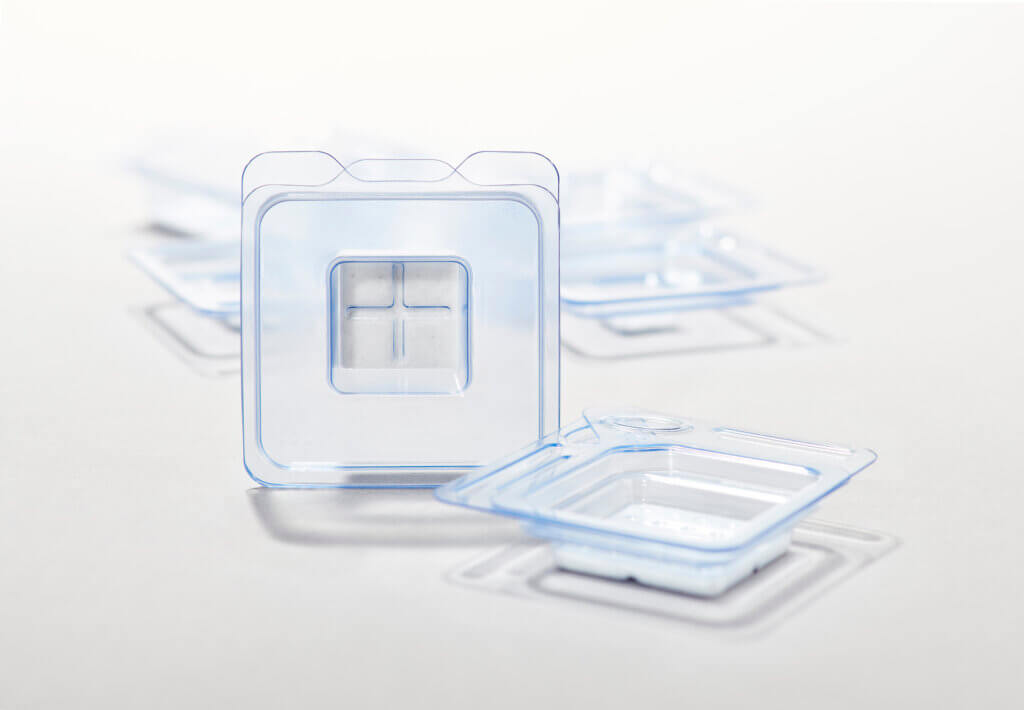Engineered Tissue Solutions Celebrates Publication of Second Randomized Controlled Trial Demonstrating Statistically Significant Outcomes with Mirragen® Bioactive Glass Matrix
Rolla, MO 9/30/2025 — Engineered Tissue Solutions (ETS), a leading innovator in synthetic wound care technologies, today announced the publication of results from a second randomized controlled trial (RCT) evaluating Mirragen®, the company’s borate-based bioactive glass fiber matrix, in the management of diabetic foot ulcers (DFUs). The peer-reviewed study appears in the International Wound Journal and reinforces Mirragen’s effectiveness in supporting wound closure with key statistically significant differences over the standard of care alone.
Key Results
- Primary Endpoint (Per Protocol): At 12 weeks, 73% of patients treated with Mirragen + Standard of Care (SOC) achieved complete wound closure, compared to 42% with SOC alone.
- Primary Endpoint (Modified Intent-to-Treat): In broader practice conditions, 48% of patients achieved complete wound closure with Mirragen + SOC at 12 weeks versus 24% with SOC alone.
This new, 148-patient study builds on ETS’s first 40-patient RCT on DFUs, which demonstrated similar wound closure outcomes. Together, the two trials confirm that the results are reproducible, reliable, and achieved under rigorous study designs —including the use of standardized offloading devices across all groups.
“This publication is a major milestone for ETS, and we are incredibly appreciative of the phenomenal work conducted by the investigators, authors, and editors that enabled this success,” said AJ Ford, CEO of Engineered Tissue Solutions. “Significant clinical evidence like this shows ETS’ continued commitment to evidence-based medicine, and the complete wound closure rates highlight the incredible potential of our unique bioactive glass technology for diabetic foot ulcer management.”
According to SmartTRAK, synthetic technologies are the fastest-growing segment within the broad category of advanced wound care products called skin substitutes, also referred to as CTPs or CAMPs. To date, published clinical evidence for synthetic products has been limited to small case series or small RCTs. This second RCT on diabetic foot ulcers, particularly the significant number of patients (148) involved in the study, is a first-of-its-kind amongst synthetic matrices in the wound care industry.
Citation: D. G. Armstrong, D. P. Orgill, R. D. Galiano, et al., “ A Borate-Based Bioactive Glass Advances Wound Healing in Non-Healing Wagner Grade 1 Diabetic Foot Ulcers: A Randomised Controlled Clinical Trial,” International Wound Journal 22, no. 10 (2025): e70763, https://doi.org/10.1111/iwj.70763.
About Mirragen®
Mirragen is a borate-based bioactive glass fiber matrix, intentionally engineered to facilitate quality tissue formation. Unlike tissue-based products, because Mirragen is synthetic, it avoids the traditional risks of infection. Its versatile, easy-to-use form factor allows providers to apply to a wide range of chronic and complex wounds, where it supports key wound healing processes like angiogenesis, granulation, and re-epithelialization.
About Engineered Tissue Solutions
Engineered Tissue Solutions (ETS) is advancing wound care with bioactive glass technology that is designed to improve outcomes, reduce complications, and enhance patient care. Its flagship product, Mirragen®, is the first synthetic skin substitute supported by two rigorous randomized controlled trials in chronic wound management.
Media Contact
Jody Dell
Marketing Communications Director
Engineered Tissue Solutions
Phone: 573.202.2550
Email: ets.support@heraeus.com

Mirragen is a borate-based bioactive glass fiber matrix that facilitates quality tissue formation without the traditional risk of infection tissue-based products have, all in an easy to use, versatile form factor.